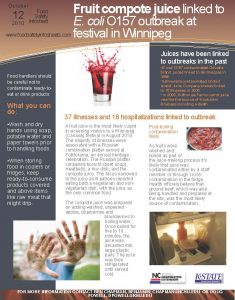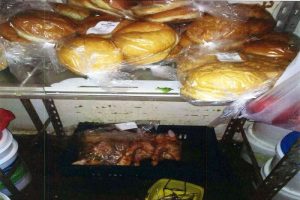I’m not sure I buy it.
 Not enough critical questions answered, coupled with numerical spin.
Not enough critical questions answered, coupled with numerical spin.
Jasper Lindell of The Canberra Times reports the number of improvement notices issued to ACT businesses for not complying with food safety requirements more than halved in the last financial year, with ACT Health confident there were fewer serious safety breaches.
Eighty-seven improvement notices were issued in 2018-19, down from 341 in 2017-18. More than 600 were issued in 2015-16, according to figures from ACT Health.
In 2017-18, 2443 inspections were carried out while 2552 inspections were completed in 2018-19.
The targeted amount in both years was 2500 inspections.
The executive branch manager of the ACT Health Protection Service, Conrad Barr, said food businesses in the ACT demonstrated a high level of compliance with safety standards.
“We are focused on protecting the community with our food safety inspectors doing over 2500 inspections every year.
“We also aim to strike the right balance of regulation with our compliance activity, actively working with businesses to rectify any issues that are identified,” he said.
The decline in food safety breaches followed the introduction in 2017 of a model to educate businesses and their staff in food safety requirements, after five years of inspection pass rates falling well below the targets.
ACT Health has collaborated with the Canberra Business Chamber and Access Canberra to run information seminars for food businesses, community groups and event organisers.
Proactive inspections provided a chance for food businesses to discuss food safety issues directly with public health officers, while seminars and self-assessment options were made available to businesses, a spokeswoman for the directorate told the Sunday Canberra Times.
Common food safety issues found in ACT food businesses include a lack of handwashing facilities, poor temperature control and live pests.
Inspectors also identified inadequate cleaning and sanitation, no food-grade thermometer at the time of the inspection, or no nominated food safety supervisor.
Despite strong public support, the ACT government in 2015 ditched its proposal for a “scores on doors” system of restaurant safety ratings, which has been used in other parts of Australia and globally.






